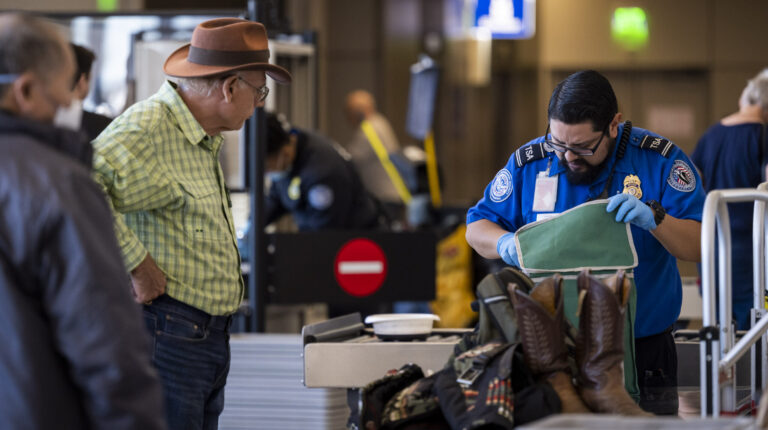US think-tank Reason Foundation has proposed legislation to reform the Transportation Security Administration (TSA) so that airport security is not affected in the event of a government shutdown.
As essential workers, TSA employees are required to work as usual through a government shutdown, but their salaries will not be paid until the shutdown ends and federal funding resumes. This sometimes results in increased sick leave across the workforce. TSA said this week that despite some absences, checkpoint operations have not been affected by the current shutdown. However, the agency asked passengers to be patient and ready for delays in the event of an extended shutdown. Previous government shutdowns have affected airport security wait times considerably, particularly the prolonged ones that have led screening officers to seek employment elsewhere.
Reason Foundation’s proposed legislation, which it calls the TSA Reform Act, would separate the provision of airport screening from its regulation. Pointing to the European model, the think-tank’s proposal would require that airport security screening be conducted by “an employee or agent of an airport,” who would be certified and regulated by TSA.
The proposal adds that the basic statutory framework of TSA’s Screening Partnership Program – where airports can apply to seek the services of private screening companies – be amended to enable airports to contract directly with security screening providers or to self-provide screening services.
“The screening companies should be certified by TSA to be eligible for selection by individual airports, and airports should be able to choose the screening companies that best fit their needs, and terminate contracts with those that fail to provide adequate service,” said Marc Scribner, senior transportation policy analyst at Reason Foundation, adding that airports that choose to self-provide screening services should be subject to the same TSA certification and oversight as private screening companies.
Reason Foundation also recommended that Congress reform the existing security service fee, commonly referred to as the 9/11 Security Fee, which is currently applied to the cost of airline tickets. “To fund airports’ security screening operations, Congress should convert the 9/11 Security Fee into a dedicated local airport user fee akin to the passenger facility charge (PFC),” Scribner said. “Revenue from a reformed 9/11 Security Fee would be sufficient to cover security screening services at most airports, although Congress should require, as part of these reforms, that TSA conduct a detailed financial analysis. Low-volume airports that might be unable to raise sufficient revenue to provide effective security screening should be supported by a separate account established by Congress and funded through annual appropriations, along with TSA administrative costs and other activities lawmakers deem appropriate.”

